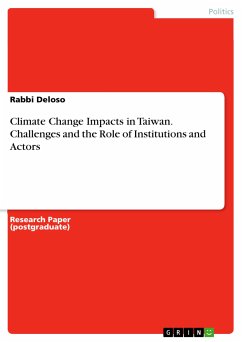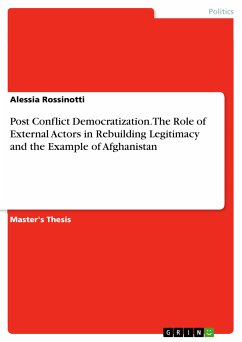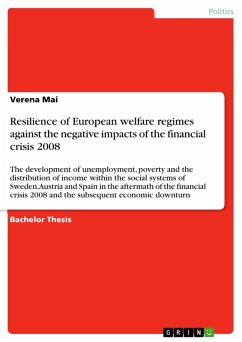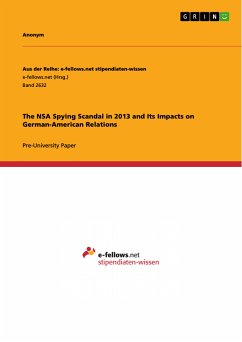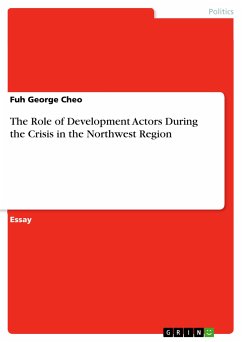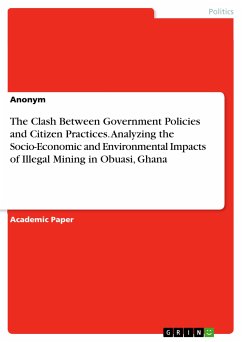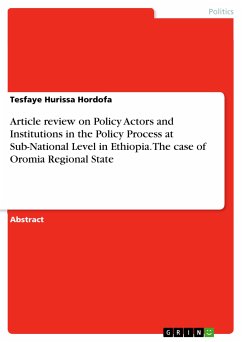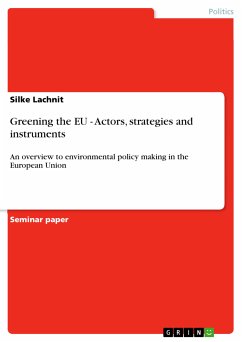Research Paper (postgraduate) from the year 2008 in the subject Politics - Environmental Policy, grade: 1.5, University of Bristol, language: English, abstract: With a focus on Taiwan as a local case of exploration, the study seeks to explore the role of institutions and actors who are involved, to identify the challenges experienced in the adopting and implementing process, with the hope to illuminate from the data as to why these challenges exist. The research also touches upon a larger discussion beyond what adaptation strategies can contribute, specifically in framing sustainable development for the country. Taiwan is at the forefront of climate change. The blend of being located at the confluence of three major rivers and being exceptionally low-lying, makes Taiwan vulnerable to natural disasters, such as typhoons and flooding leading to displacement and human catastrophe. On the one hand, this means that the government and citizens of Taiwan has a long history of preparing for, adapting to and recovering from natural disasters. Using a case study research design, qualitative research methods were employed, and interviews conducted with various actors to achieve the aims of the study. A theoretical and conceptual framework was used on the paradigms of natural hazards and vulnerability, the three components of adaptation, and the role of actors and institutions. In terms of knowledge and involvement with climate-related adaptation, it is an emerging aspect set within the larger disaster risk reduction context. Identified challenges in educating and communicating the strategies often emerge at the government and community-levels, potentially drawing from bureaucratic challenges funnelling down to local government units, which are exacerbated by feelings of distrust and strained relations of communities toward the government. Finally, few themes were found from the data in connecting climate change adaptation strategies to a greater role in framing sustainable development in Taiwan. However, alleviation of impoverished conditions and education were two critical aspects for cultivating knowledge needed to promote long-term efforts toward resilience, and thus sustainability of the local people during disaster events.
Dieser Download kann aus rechtlichen Gründen nur mit Rechnungsadresse in A, B, BG, CY, CZ, D, DK, EW, E, FIN, F, GR, HR, H, IRL, I, LT, L, LR, M, NL, PL, P, R, S, SLO, SK ausgeliefert werden.

